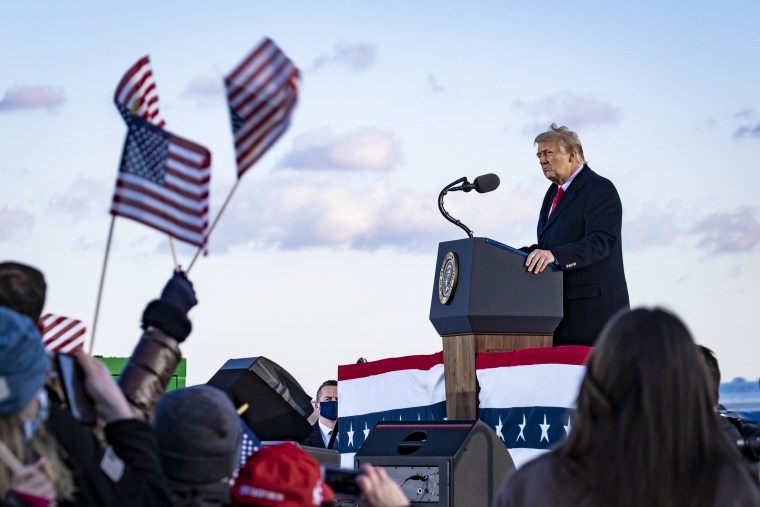With just one week remaining before Donald Trump's second Senate impeachment trial, the legal teams for both the prosecution and the defense filed briefs with senators yesterday, presenting an overview of their respective cases. The Democratic House impeachment managers submitted this brutal 80-page document, leaving little doubt that the former president can be tried and was responsible for inciting an attack against the U.S. Capitol on Jan. 6.
For Trump, the conditions are a bit more complicated. The Republican initially struggled to find lawyers willing to represent him, then settled on a defense team, only to part ways with his own attorneys over the weekend after they resisted his appeals to peddle ridiculous arguments. Trump soon after announced he'd found new representation, who had to scramble to complete yesterday's filing.
The result was unfortunate.
Trump's legal team filed its trial brief Tuesday afternoon, asking that the Senate dismiss the impeachment article "because the Senate lacks jurisdiction to remove from office a man who does not hold office." ... They denied that "the 45th president engaged in insurrection or rebellion against the United States" or that he violated his oath of office.
The entire 14-page filing is online, and to get a sense of how bad it is, note that Slate's Jeremy Stahl listed the "craziest impeachment defenses," and then ranked the top eight based on the degree to which they're ridiculous.
There's too much to unpack in a single blog post, but Politico put the spotlight on one angle of particular interest.
Trump's lawyers, Bruce Castor and David Schoen, also advanced the former president's false claims that the election results were "suspect," asserting that Trump has a First Amendment right to express that view. "Insufficient evidence exists upon which a reasonable jurist could conclude that the 45th president's statements were accurate or not, and he therefore denies they were false," Castor and Schoen wrote, adding that Trump "denies" it is false to say he won the election "in a landslide."
The lawyers' writing is at times garbled, but the underlying argument is worse.
First, the First Amendment argument is impossible to take seriously. Obviously, Trump has the same free-speech rights as the rest of us, but like the rest of us, that right is not without legal limits. Inciting a riot, for example, is not constitutionally protected speech.
What's more, there are inevitable consequences to presidential speech. If a hypothetical president, for example, were to deliver remarks in which he shared highly sensitive national security secrets and then encouraged the United States' enemies to launch an attack, that president should expect to be impeached. His or her lawyers could not credibly defend the conduct by pointing to the First Amendment.
This is obviously not what Trump is specifically accused of in this instance, but the larger point is the same: freedom of speech does not empower a president to say literally anything he pleases without consequence.
But just as important is the argument that Trump apparently thinks he won the race he lost. Here's that sentence again: "Insufficient evidence exists upon which a reasonable jurist could conclude that the 45th president's statements were accurate or not, and he therefore denies they were false."
It's as mind-numbing as it is bizarre. As Vox added, referring to the Republican's lawyers, "They're not saying Trump's statements about Democrats stealing the election from him were true; they're just claiming there's not enough evidence to persuade a 'reasonable jurist' that his claims are false, and so 'therefore' Trump denies they're false. Clear as mud."
In reality, meanwhile, the evidence disproving Trump's fraud claims is overwhelming, and his denial that his lies were false is utterly irrelevant.
But it was the conclusion of a Washington Post analysis that rang true with me: "Lawyers are paid to make the best case they can for their clients. If this is Trump's best case, he's lucky that nearly half the jurors who will evaluate it are already firmly in his camp."
Quite right. The filing from Trump's new-and-not-improved defense team is an embarrassing joke, which will persuade no one. Except, it doesn't matter, since so many Senate Republicans won't bother reading it, having convinced themselves that they must side with their party's corrupt and failed former president, evidence be damned.

